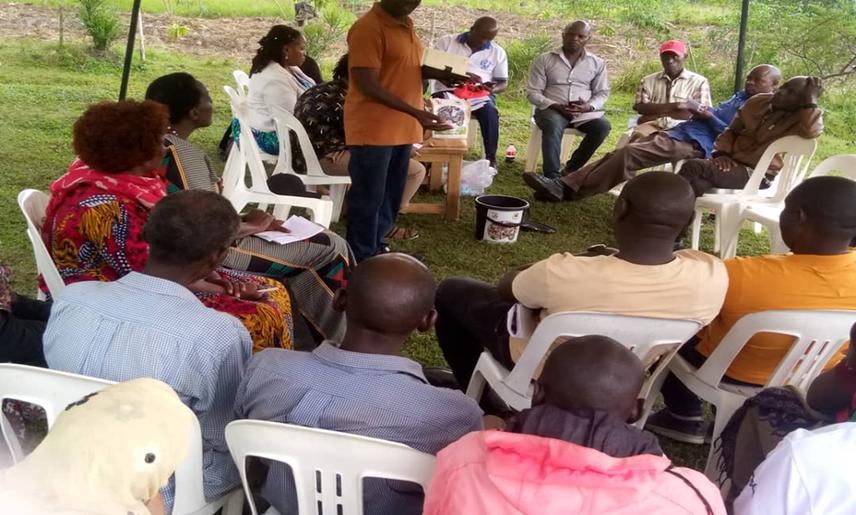Article featuring the project:
Syliver Byabasaija
Other projects
14 Oct 2019
Ecological and Social Impacts of Invasive Plant Species on Maputo Special Reserve and Integration of Surrounding Communities in Management
Communities in Lake Victoria Crescent, Uganda believe that continuous fish production decline has negatively affected their livelihoods, income and food security. From the farmer’s point of view, declining fish catches are not attributed to a single cause but several of them (FAO, 2021). Declining fish species in Lake Victoria is one of the largest documented losses of biodiversity in an ecosystem. Reduction in fish species is attributed to overexploitation through increased fishing capacity and overdependence on the lake (FAO, 2021). Decreasing catches of fish in Lake, and growing demand for fish protein has ultimately resulted into need to strengthen strategies to boosting aquaculture production in Lake Victoria crescent to reduce pressure.

Participants being taken through integrating black soldier fly larvae as alternative fish feed.
In this project, we will i) carry out suitability modelling of fish pond development, ii) respond to resource availability to develop aquaculture in area sustainably iii) understand aquaculture contribution to livelihood and its influence on capture fisheries reduction iv) assess factors influencing fish farmer’s perceptions towards sustainable aquaculture development, and v) train communities on different approaches to develop aquaculture without interfering area biodiversity. Project will employ mixed methods approach and use Geographical Information System. Output of the project will form basis for sustainable aquaculture development amidst ecologically sensitive areas and inform policy makers on resources need for sustainable aquaculture development.
The project will provide the suitability map of the areas that are suitable for the sitting of the fishponds. The training of communities on the need for considering ecologically sensitive areas, will boost the community understanding on why there is need to conserve the area biodiversity amidst aquaculture development, the assessment of resources will help to provide knowledge base for proper planning of the sustainable development of aquaculture in the Lake Victoria crescent. In addition, the issue of site for aquaculture has been very challenging and complex, this project will come up with the modelling approaches that will provide reliable information on the proper planning for development of aquaculture in the Lake Victoria crescent, Uganda. The project will raise community awareness on the need and new technologies that can be adopted for aquaculture development, as an option to reduce pressure on capture fisheries. We believe that after the implementation of this project, it will provide some guidelines to policy makes to form basis for aquaculture development in the Lake Victoria, once this is achieved, the pressure on fish species like Nile tilapia and African catfish will be reduced.
Header: Site visits to reinforce theoretical knowledge by participants-observing existing fishponds.